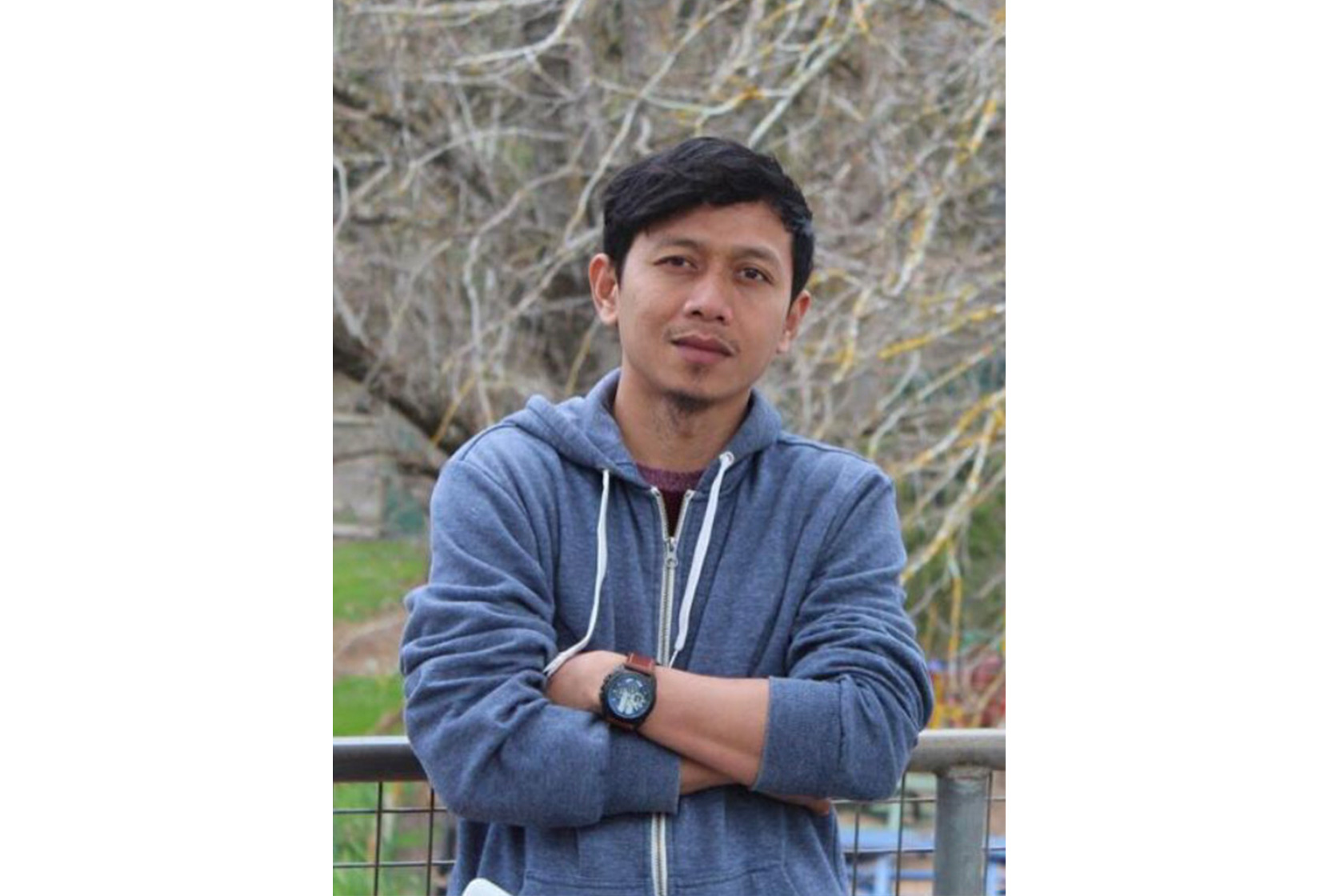
01 December 2025
Australian Alumni Gala Dinner Celebrates Outstanding Alumni Contributions
The Australian Alumni Gala Dinner on 20 November 2025 in Jakarta brought together hundreds of Indone... Read more
The Australia Awards are prestigious, transformational scholarships and short courses offered to emerging leaders for study, research and professional development in Australia

05 May 2025
 Nurdin Syarif Looks to Disrupt Vocational High School by Integrating Digital Skills
Nurdin Syarif Looks to Disrupt Vocational High School by Integrating Digital Skills
For teacher and careers advisor Nurdin Syarif, equipping his students with strong digital skills is not just about preparing them for the workforce – it’s about enhancing their learning experience.
At Seteluk Vocational High School 1 (SMKN 1 Seteluk) in West Sumbawa, West Nusa Tenggara, he teaches English and is also Head of the Special Job Placement Centre.
There, he is tasked with assisting students and graduates of the senior high school to find work. He finds job vacancies, builds relationships with companies, and connects students with employers who need their skills.
One day, while he was watching a video about how modern mining equipment is operated remotely, something clicked.
‘I want to make my students more aware of and familiar with the digital world,’ said Nurdin. ‘I see it as crucial for students at this vocational school to understand technological advancements and how they apply in their fields of work.’
In 2023, he joined the Aus4ASEAN Short Course on Improving Digital Readiness and Resilience of TVET Systems in ASEAN, delivered by RMIT University, to learn more.
Driving Digital Transformation in Education
The Short Course provided Nurdin with an opportunity to gain deeper insights into using artificial intelligence (AI) in education, specifically the application of ChatGPT.
‘Previously, I assumed that ChatGPT functioned like a typical search engine such as Google. However, during the course, I learned how to craft high-quality prompts so the outputs from ChatGPT are precisely aligned with our needs,’ Nurdin explained.
Now, Nurdin shares his knowledge of AI with students and fellow teachers.
‘I encourage my students to utilise ChatGPT wisely to help them study better and keep up with the latest trends in digital skills. I have also taught students in Visual Communication Design and Graphic Design to use AI tools such as MidJourney and Leonardo to inspire and support their learning in sketching designs,’ he said.
‘My goal is to truly bring the school to life in the digital age. I want students to enjoy learning at school by fully integrating technology into the educational process.’
The Short Course was not Nurdin’s first time studying in Australia, having graduated with a Masters of Education at the University of South Australia. Reflecting on both experiences, he recognised how Australia’s education system anticipates future challenges. For instance, Australia had already prepared online teaching and learning methods well before the COVID-19 pandemic.
The Short Course became a turning point for Nurdin to adopt the same mindset.
‘After the Short Course, I shared with the school that we must always be prepared for unexpected events like the COVID-19 pandemic. We cannot remain comfortable with conventional teaching methods. I also emphasised that we need to take the digital transition seriously if we want our school to progress,’ he explained.
So far, he has successfully introduced online testing, using applications such as Safe Exam Browser for daily, mid-term, and semester exams.
Being a disruptor and encouraging teachers and students to step out of their comfort zones was no easy task. On several occasions, the tests have been delayed due to technical issues, but Nurdin is pushing ahead.
‘We, as teachers, cannot afford to be rigid and stick solely to traditional teaching methods. We must keep up with the times and utilise technology that enables us to teach even if we’re unable to be present at school. This also includes allowing students to use their mobile phones for learning purposes,’ he said.
Nurdin’s efforts to implement online tests at SMKN 1 Seteluk have received encouragement from Matt Warren, Director of the RMIT Centre of Cyber Security Research and Innovation[1].
Exploring a New Career Path in IT
The short course in Australia has also led Nurdin to rethink his next steps after 13 years as a teacher.
‘The course gave me a clearer perspective on the digital world. It’s not just about Google or mobile apps; there’s so much more that I didn’t know, like the dangers of malware and viruses. All this time, I’ve only been seeing the tip of the iceberg when it comes to the digital world,’ Nurdin said, reflecting on the benefits he gained from the program.
‘I’m now considering the possibility of shifting my career to the IT field, although it’s undeniably challenging.’
During the Short Course, a visit to the Australian Cyber Collaboration Centre sparked his passion for exploring the field of cybersecurity further.
‘A truly life-changing experience for me was the simulation and exercises on cybersecurity at the Australian Cyber Collaboration Centre. It was fascinating to see the facilities there and how they could detect the details of cyber attacks, from the hacker’s country of origin to the methods used,’ Nurdin explained.
The visit inspired an interest in becoming an ethical hacker, a professional who is hired to find security vulnerabilities in an organisation’s computer networks.
Although the Short Course has long since ended, Nurdin continues to teach himself about cybersecurity and hacking using various resources such as websites, books, and YouTube. He has also joined training programs related to digital skills, including the Microcredential CS50X Indonesia-Harvard University Digital Skill program, organised by the Directorate General of Teachers and Education Personnel in Jakarta in 2023.[2]
‘I’m still learning about cybersecurity and hope to become an ethical hacker someday,’ he concluded.
Share this news on:
 Related News
Related NewsThis website uses cookies to improve your website experience. We may also use cookies to analyse website data so that we can improve our online services. To find out more visit our privacy policy.
